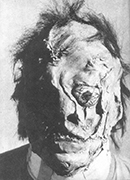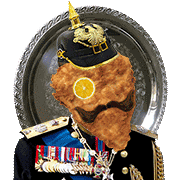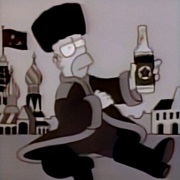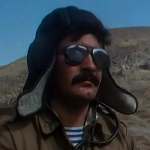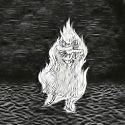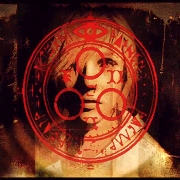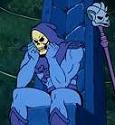|
Digital Jedi posted:Looking for some recommendations on books that focus on architecture and art on Rome and another more specifically focusing on The Vatican. I'm probably going to get poo poo for this but Angels & Demons by Dan Brown takes place almost exclusively in Rome and heavily features the architecture and art in and around the Vatican. edit: I didn't realize this was the history book thread and not the general recommendation thread but if you're down for a thriller it's still pretty good imo
|
|
|
|

|
| # ? Apr 19, 2024 23:35 |
Digital Jedi posted:Anything else recommended to read prior to a trip there is welcomed as well. the Catechism of the Catholic Church and then Rome: An Urban History from Antiquity to the Present by taylor et al. its heavily focused on art and architecture i have not read kleiner's roman architecture: a visual guide but have heard its good from a friend who went last year Humerus posted:I'm probably going to get poo poo for this but Angels & Demons by Dan Brown takes place almost exclusively in Rome and heavily features the architecture and art in and around the Vatican. no chernobyl kinsman fucked around with this message at 03:23 on Feb 29, 2020 |
|
|
|
|
I just re-read Mcpherson's most excellent Battle Cry of Freedom, and want to know more about Reconstruction and why/how it ultimately failed. Are there any good even-keeled books you fine folks would recommend?
|
|
|
|
Eric Foner's Reconstruction is still considered the seminal work, but a couple of other good ones: Henry Louis Gates' Stony the Road and Stephen Budiansky's The Bloody Shirt. Brenda Wineapple's Ecstatic Nation and Richard White's The Republic for Which it Stands both cover the period as part of broader overviews.
|
|
|
|
I've been enthralled in The Penguin History of Modern Vietnam: A History by Christopher E. Goscha. I'm reading the UK 2016 edition but it's also been published in America under a similar title. And my lord is the history of Vietnam absolutely fascinating. I mean, the book tranquilizes me every night but not before blasting my soul on a mission civilisatrice to the most humid, horrid bureaucracies. Never subjugate the Cham. Always learn Quốc Ngữ. Or maybe I've finally aligned my taste buds to deeply enjoying reading history books. Because I have a feeling the modern history of Vietnam, however cool to me, is just equally intricate as all the rest. I'm looking for books on South America+the incas. If anybody has any recommendations of quality history books on the cold war? I've got The Cold War: A World History Book by Odd Arne Westad on my bedside table and: One Hell of a Gamble: Khrushchev Kennedy, Castro and the Cuban Missile Crisis, 1958–1964 Iron Curtain: The Crushing of Eastern Europe 1944-1956 Postwar: A History of Europe Since 1945 On the way but if anybody has read any other cool cw books lemme know 
Lampsacus fucked around with this message at 00:45 on Mar 18, 2020 |
|
|
|
|
Last Days of the Incas by MacQuarrie is great.
|
|
|
|
Lampsacus posted:I've been enthralled in The Penguin History of Modern Vietnam: A History by Christopher E. Goscha. You want The Incas by Terrence D'Altroy.
|
|
|
|
Lampsacus posted:If anybody has any recommendations of quality history books on the cold war? I've got The Cold War: A World History throw in one minute to midnight: kennedy, khrushchev, and castro on the brink of nuclear war by michael dobbs to complement the fursenko/naftali book. meticulously researched book that draws well-deserved attention to miscommunication, miscalculation, and lower-level actors. lots of fascinating small stories, like that U-2 pilot who veered off into soviet airspace or the two cubans tasked with blowing up the matahambre mine at an extremely inconvenient time. if you're interested in the development of nuclear weapons doctrine, fred kaplan's wizards of armageddon is great, if a bit dry. he's also come out with a more up-to-date and accessible book called the bomb. if academics talking about academics' your thing, david engerman's know your enemy: the rise and fall of america's soviet experts is an excellent study of the politically tortured world of soviet scholarship in the USA.
|
|
|
|
Fighting Trousers posted:Eric Foner's Reconstruction is still considered the seminal work, but a couple of other good ones: Henry Louis Gates' Stony the Road and Stephen Budiansky's The Bloody Shirt. Brenda Wineapple's Ecstatic Nation and Richard White's The Republic for Which it Stands both cover the period as part of broader overviews. I've been reading some of the WPA Slave narratives online and am struck by how often the former slaves have fond memories of slavery and wish to go back. Of course not every slave owner was Simon Legree, and some tell of a very different, much more violent experience, but it was very surprising to me. I've chalked much of it up to people remembering their childhood more fondly than reality, being fairly young when enslaved, and a yearning back for a period of stability in the desperation of the Great Depression, not to mention wanting to tell the nice white person with the tape recorder what they want to hear, but one also can't quite throw out the testimony of people who were there. Are they are any good, broad collections of other accounts from former slaves I should check out? It seems like accounts collected from freed slaves who were older at Surrender (which is not a term i'd really encounter before but is what most of the narratives I've read say-not emancipation) and made when the memory of slavery was fresher in the mind might not be so rose-colored.
|
|
|
|
The other thing you can’t discount is the editorial choices of the author. They might have not used some of the more negative accounts or given the positive one greater emphasis. Insisting that slavery was a benevolent institution that ultimately benefited those poor, simple Africans who couldn’t take care of themselves otherwise and isn’t it awful those nasty federals forced them out of the protective embrace of their masters was kind of a thing in the Jim Crow south.
|
|
|
|
Cyrano4747 posted:The other thing you can’t discount is the editorial choices of the author. They might have not used some of the more negative accounts or given the positive one greater emphasis. They certainly don't whitewash everything-there's plenty of whippings and beatings (though it seems more usually by the overseer than the slave owner-again is this the truth as they remembered it, or is the overseer a scapegoat for what the slave owner did). It also mentions a case (graphic violence ahead) of an escaped slave who had killed a white man being chained to the ground and burned alive. This struck me especially because I had read of something similar in some old family history and discounted it, but it seems to have been a real and not uncommon punishment for slaves who killed white people
|
|
|
|
Yeah the brutal overseer who is operating that way without the knowledge of the benevolent was a pretty typical stock character. I haven’t read that book so I’m not going to comment on it directly but I’d at least be wary (which you are so good)
|
|
|
|
Remember too that a lot of WPA slave narratives were collected by white interviewers, so some of the interviewees might have been reluctant to criticize white slaveholders to other white people, for fear of causing offense or trouble. Also, on top of that, slavery was abolished in 1865, and these interviews were conducted in 1936-38. That's 70 years, which means that most of the people being interviewed were children when they were set free. Their experience in slavery and their understanding of it would have been different than that of people who were slaves as adults. And, of course, it had been over 70 years since emancipation, which sets up its own problems when it comes to things like memory and retellings. It's possible that their stories would have been different if they had been told in 1866 than in 1936. That doesn't mean they aren't valuable resources, but that, like with all sources, they're not perfectly objective.
|
|
|
|
Epicurius posted:Remember too that a lot of WPA slave narratives were collected by white interviewers, so some of the interviewees might have been reluctant to criticize white slaveholders to other white people, for fear of causing offense or trouble. This is a key point, yeah. See the discussion and cited articles at https://en.wikipedia.org/wiki/Slave_Narrative_Collection#Legacy
|
|
|
|
Epicurius posted:And, of course, it had been over 70 years since emancipation, which sets up its own problems when it comes to things like memory and retellings. It's possible that their stories would have been different if they had been told in 1866 than in 1936. This is an issue in holocaust scholarship too. Survivor testimony is important but it isn’t infallible.
|
|
|
|
Silver2195 posted:This is a key point, yeah. See the discussion and cited articles at https://en.wikipedia.org/wiki/Slave_Narrative_Collection#Legacy This article on manipulative editing of ex-slave narratives from Mississippi also deserves mention: https://journals.openedition.org/orda/522
|
|
|
|
Cyrano4747 posted:Yeah the brutal overseer who is operating that way without the knowledge of the benevolent was a pretty typical stock character. ...also in Russia, where hating the Cossacks and wishing the Czar knew what was going on so they could stop it is about as common.
|
|
|
|
ulmont posted:...also in Russia, where hating the Cossacks and wishing the Czar knew what was going on so they could stop it is about as common. See also: the sheriff of Nottingham. It’s also depressingly common in any flavor of dictator apologia you care to pick. “Hitler was an OK guy but had some real poo poo heads doing awful stuff in his name”.
|
|
|
|
Silver2195 posted:This article on manipulative editing of ex-slave narratives from Mississippi also deserves mention: https://journals.openedition.org/orda/522 I ordered a copy of Slave Testimony: Two Centuries of Letters, Speeches, Interviews, and Autobiographies by John W. Blassingame as a not-compiled-by-white-people alternative for $5 used, so we'll see how it differs.
|
|
|
|
What are some good books about the Congo Wars? Edit: And on a different note, I'd also be interested in a book about the history of Bollywood and Indian Cinema in general. bowser fucked around with this message at 23:21 on Mar 28, 2020 |
|
|
|
whats some good books on the balkan wars of the 1990s.
|
|
|
|
Dapper_Swindler posted:whats some good books on the balkan wars of the 1990s. Two of the books I would gladly recommend both take the approach of starting at a point much earlier in history and moving onwards to the nineties. They are Robert Kaplan’s Balkan Ghosts and Misha Glenny’s The Balkans. They are not nearly as good as some of the classic books about other conflicts, but they are probably the best I was able to find. If you want a more Croatian-centric approach, Marcus Tanner’s Croatia: A Nation Forged in War is a cool little book. I can vouch for its accuracy, having lived through the events described in it. The Death of Yugoslavia, compiled to accompany the acclaimed (and excellent) BBC TV documentary series could be worth checking out, too. The TV show is brilliant, I haven’t read the book though. I would gladly read anything better others might suggest.
|
|
|
|
I'm looking for some books about shipwrecks, the aftermath of them, or just exploration expeditions that go wrong.
|
|
|
|
bowser posted:What are some good books about the Congo Wars? Stearns' Dancing in the Glory of Monsters is a great book about the Congo Wars. It is a horrific omnishambles.
|
|
|
|
big dyke energy posted:I'm looking for some books about shipwrecks, the aftermath of them, or just exploration expeditions that go wrong. Try Lorri Jackson's The Shipwreck That Saved Jamestown, about the wreck of the Sea Venture, the discovery of Bermuda, and how Jamestown came within literal hours of failing.
|
|
|
|
big dyke energy posted:I'm looking for some books about shipwrecks, the aftermath of them, or just exploration expeditions that go wrong. Have a look at: In the Heart of the Sea: The Tragedy of the Whaleship Essex (Philbrick). A shipwreck and survival history that inspired Moby Dick with an interesting summary of the Massachusetts whale oil industry. Philbrick has a few other boat-based books that I have not read. Endurance: Shackleton's Incredible Voyage (Lansing). The ultimate in tits-up expeditions. Return of the Obra Din. Interesting detective PC game about a thoroughly gone-wrong ship voyage.
|
|
|
|
big dyke energy posted:I'm looking for some books about shipwrecks, the aftermath of them, or just exploration expeditions that go wrong. I will have a few more when I get home and I can look at my bookshelf, since it's an area of interest for me, but the absolute best one ever written is Batavia's Graveyard.
|
|
|
|
Matchstick posted:Have a look at: I'd second In the Heart of the Sea; it was pretty horrifying to read what the crew went through after their ship sunk. The movie based off the book didn't do it justice, sadly. I'd recommend checking out Island of the Lost by Joan Druett: quote:It is 1864, and Captain Thomas Musgrave’s schooner, the Grafton, has just wrecked on Auckland Island, a forbidding piece of land 285 miles south of New Zealand. Battered by year-round freezing rain and constant winds, it is one of the most inhospitable places on earth. To be shipwrecked there means almost certain death.
|
|
|
|
Pick posted:I will have a few more when I get home and I can look at my bookshelf, since it's an area of interest for me, but the absolute best one ever written is Batavia's Graveyard. Holy crap that looks good. Thanks. The Wreck of the Medusa (Miles) is another one, but it may be too far afield for what you're looking for. It covers Gericault's (his famous painting The Raft of the Medusa is based on this shipwreck) life and the French socio-political environment just as much as the shipwreck.
|
|
|
|
PlushCow posted:I'd recommend checking out Island of the Lost by Joan Druett: Seconding this. Endurance is also a must-read.
|
|
|
|
My library has In the Heart of the Sea and Endurance in ebook, so it looks like that's where I'm starting. Thanks everyone.
|
|
|
|
Mantis42 posted:What are some good books about American electoral history? Something like Rick Perlstein (Nixonland), I mean. Something that captures the insanity of the whole thing. Seconding the recommendation on the LBJ books by Caro. They cover his original run to get into the House, his failed and then successful Senate runs, and running with JFK. And basically everything in between. Paying for votes, rigged precincts, legal swashbuckling.
|
|
|
|
Maybe its because I'm stuck inside all day every day now but I've been thinking a lot about what its like to be in a city under siege. Looking for book recommendations that really get into the details and day-to-day goings-on of a siege. Would prefer 18th & 19th century since that is most likely to be something I don't already know a bunch about, but happy to look at all recommendations.
|
|
|
|
Leningrad.
|
|
|
|
|
The Fall of Paris by Alistair Horne is a singular read.
|
|
|
|
Tolstoy wrote a pretty cool little book called Sketches from Sevastopol, based on his experience of the siege of Sevastopol during the Crimean War
|
|
|
|
Class Warcraft posted:Maybe its because I'm stuck inside all day every day now but I've been thinking a lot about what its like to be in a city under siege. Looking for book recommendations that really get into the details and day-to-day goings-on of a siege. Erik Larson just released a book called The Splendid and the Vile about the first year of Winston Churchill's term as prime minister, which was 1940 to 1941, which covers the Battle of London and a city gripped on the edge of fear about a pending German invasion. I'm just a few chapters in, but it's largely focusing on the everyday life of Londoners while they dealt with their homes being bombed and the horrors or war being moments away at any time. https://www.amazon.com/Splendid-Vil...86485093&sr=8-1
|
|
|
|
Any recs for good books on the French Resistance, or any of the anti-Nazi resistance movements during WW2?
|
|
|
|
Fighting Trousers posted:Any recs for good books on the French Resistance, or any of the anti-Nazi resistance movements during WW2? from Jo Walton's Reading List quote:A Train in Winter, Caroline Moorehead, 2011.
|
|
|
|

|
| # ? Apr 19, 2024 23:35 |
|
Fighting Trousers posted:Any recs for good books on the French Resistance, or any of the anti-Nazi resistance movements during WW2? I found Madame Fourcade's Secret War interesting.
|
|
|







